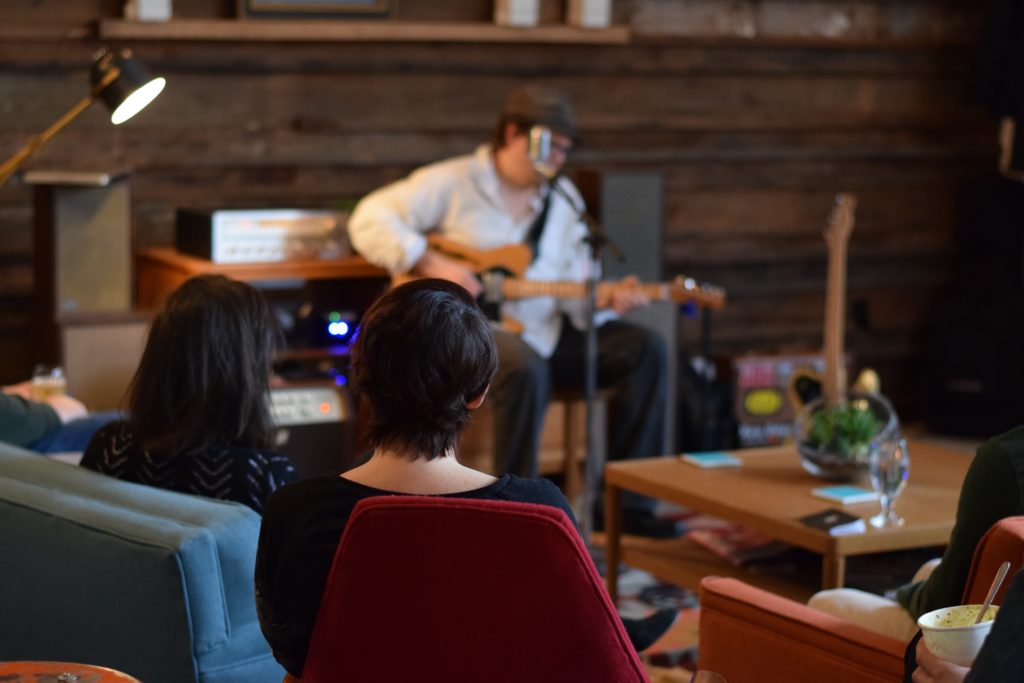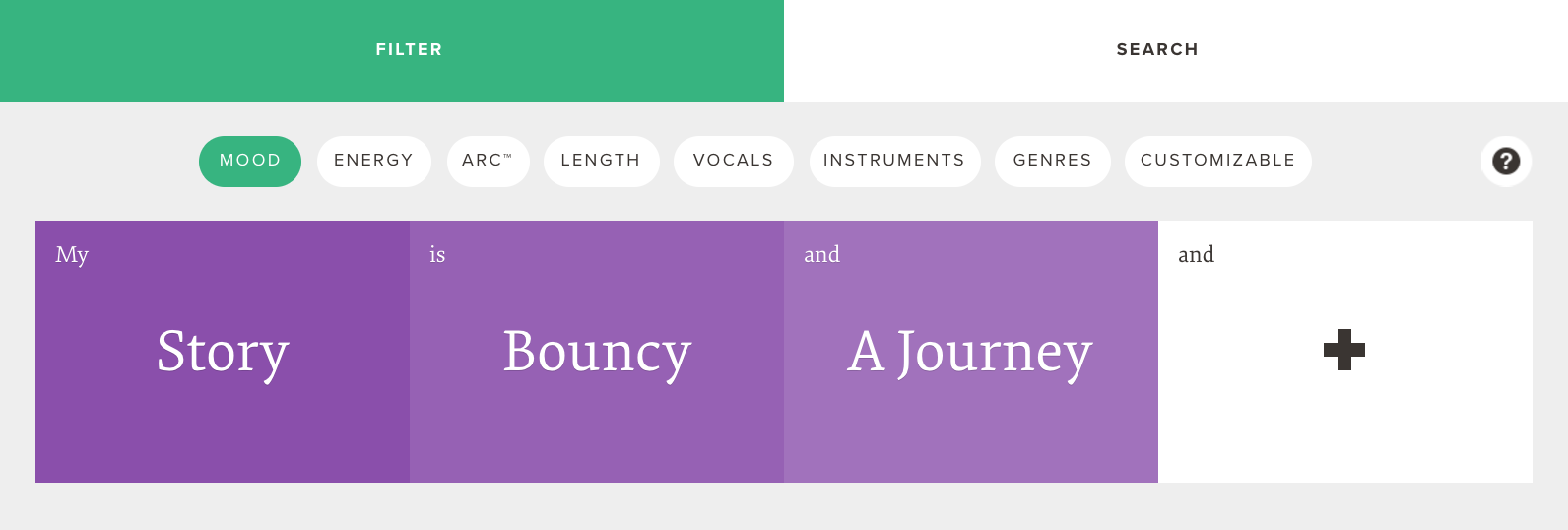This is a guest post from our great friends over at Marmoset.
If you’re a business filmmaker, chances are you’ve struggled with finding the perfect soundtrack for your videos. Business-focused videos can come with a range of challenging factors that you wouldn’t normally have to deal with in other creative projects, including: short length, animation, technical language or complicated topics. The good news is, one of the biggest things that can help you overcome these hurdles — while simultaneously enhancing the quality of your video — is music. Easier said than done, right? To take the stress out of finding your soundtrack, we’ve sought out the advice of our team of Music Curators at Marmoset, and pulled together answers to some of the big questions and challenges that often come up when trying to pair music with video.

Let’s be honest… what is music licensing?
Whether you’re making a nostalgic home video to share with family and friends or a product demonstration video that’s going to be seen by millions, you need to make sure that you have permission to use the music in your film. That’s what music licensing is.
Getting into the specifics, there are many different types of licenses available in the world of music licensing. If you’re working on the smaller scale, it may be best for you to check out the license options offered on your selected music agency’s online licensing platform. Ranging from Podcast to Small Business, these licenses tend to come at a lower price point and can be a great option for content creators and filmmakers new to the business.
For projects that don’t seem to work with the licenses available online, most music agencies also offer a “Custom License” option that allows you to work with a member of their team to create a license that works for you. Pricing for this type of license often varies, as they are quoted on a project-by-project basis, and largely depend on what you intend to use the song for. At Marmoset, our custom license prices are based on the following factors:
- Client — Who is your client? About how many people does their company employ?
- Content — What’s the video all about? Is it a film, commercial…?
- Distribution —Where will this be seen/heard? Web, broadcast, film festival, podcast…?
- Lifespan — How long will this be live? Six months? Two years? Forever?
All that aside, the bottom line with music licensing is…if you didn’t write it, you have to license it.
I’m curious… where exactly does the money go? How are the artists compensated?
Licensing companies exist to make sure that artists are compensated for their work. So, rest assured, whoever wrote the song is getting a slice of the pie. Every music agency has their own way of dividing royalties.

I think I know what I want, but what do I need to do to license it?
There are a number of different ways you can go about licensing a song. If you already have a specific song in mind, you can go directly to the artist of that song. However, if the artist of that song is Bruno Mars, it’s likely that you don’t have his phone number readily available. In cases like these, you can contact a music agency that offers clearance services to clear the song for you. Basically, this means hiring an expert (usually in the form of a music supervisor) who can jump all the hoops for you to make it possible to use the song of your dreams. It’s worth noting this is normally not the best fit for those working with budgets on the lower end of the price range, as working with well-known artists can be pricey.
If you’re still searching for the right song, there are a number of music agencies out there that offer a catalog full of options. Music licensing companies act as the middlemen between artists and anyone who wants to use their music for film, advertisements, broadcast and beyond, by offering a catalog of pre-existing options.
These catalogs often range from hundreds to thousands of songs, which can be a little overwhelming if you’re not sure what you’re looking for — especially because each company has its own way of organizing music. But to make narrowing down the options a little easier, music licensing companies with an online ‘click licensing’ platform often allow users to search by category, such as genre, mood and length.
For example, at Marmoset we’ve created a browse tool that allows you to filter songs based on the mood, energy, length and arc of your project. And if those filters don’t help you find exactly what you’re looking for, we also offer more specific browse features like Male/Female Vocal differentiation and the use of specific instruments in a song. That way, you can shrink your search from hundreds to a handful of eligible songs that are exactly what you had in mind for your project.

I’ve found many songs that I like, but how do I choose the right one?
Finding the right song can manifest itself in a number of ways, and it definitely doesn’t have to be rocket science. We reached out to a few of our Music Supervisors, who have paired music to projects for brands like Adidas, Nike and Patagonia, and asked them for their tricks of the trade when searching for the perfect song.
“It’s all about the feeling. Think of the most obvious music that comes to mind and try look for other ways of achieving that purpose.”
— Emilee Booher, Music Supervisor and Producer
“Before you think too hard, just start listening. Identify the emotion/mood you’re going for, and then start listening until you find some tracks, artists, themes that make sense.”
— Katie Seaton, Music Supervision Coordinator
“Focus on the emotion or message you want your spot to convey, then pick a track that does that for you, instead of simply focusing on a track that you like.”
— Kat Olsen, Senior Music Supervisor and Producer
It’s pretty clear that one theme reigns true here — feeling is everything. If you can pinpoint the emotions you want to convey during your video, you’re on the right track.
Every song I’ve tried just doesn’t match up. What if the perfect song doesn’t exist?
Maybe you’ve searched far and wide and decided that there’s not a song in existence that matches your project. In that case, you can make one. In addition to music licensing, some music agencies specialize in custom compositions and sound design. When working on an original score, music agencies will work with you to shape and alter the sounds of an existing song, or craft an entirely new composition that perfectly pairs with your video.
The only catch to this magic solution is that custom songs and compositions tend to be on the higher end of the budget spectrum. However, if a tailor-made song is the missing piece for a standout video, it might be well worth it. If you decide to go this route, it’s important to give as much direction as you possibly can — the more the composers know, the more likely it is the finished product will fit with your story.
At Marmoset, our Original Music Team is in charge of making our clients’ dream song into a reality. For example, we teamed up with Tillamook last year to create a song that sounded like a bold protest song, but paired easily with images of farm landscapes and exploding food. The result was a cinematic pairing of sound and picture that told a unique story:
On the other hand, sometimes an existing song fits perfectly with the mood and story you want to convey. When our friends at Nike needed a reflective, inspiring song to introduce the story of lacrosse player Lyle Thompson, our Music Supervision Team was able to find the perfect fit with “Joslyn’s Theme” by Jeff Mercel:
While these projects took different approaches, both of them ended up with fitting, emotive soundtracks. The Tillamook song was custom made to fit the events in the video, serving an integral part in telling the story, while the Jeff Mercel track sits gracefully in the background, setting the mood for the character’s narrative.
Alright, let’s wrap it up.
There are a bunch of moving parts that go into finding the perfect song for your project — identifying your mood, choosing a music agency, deciding between an original or a pre-existing song and knowing what license you need — that can seem overwhelming at first. Hopefully, now that you understand the licensing process a little more, the journey is less intimidating. If you take away only one thing from this article let it be this: Once you’ve found your feeling, you can find your song. Happy searching!